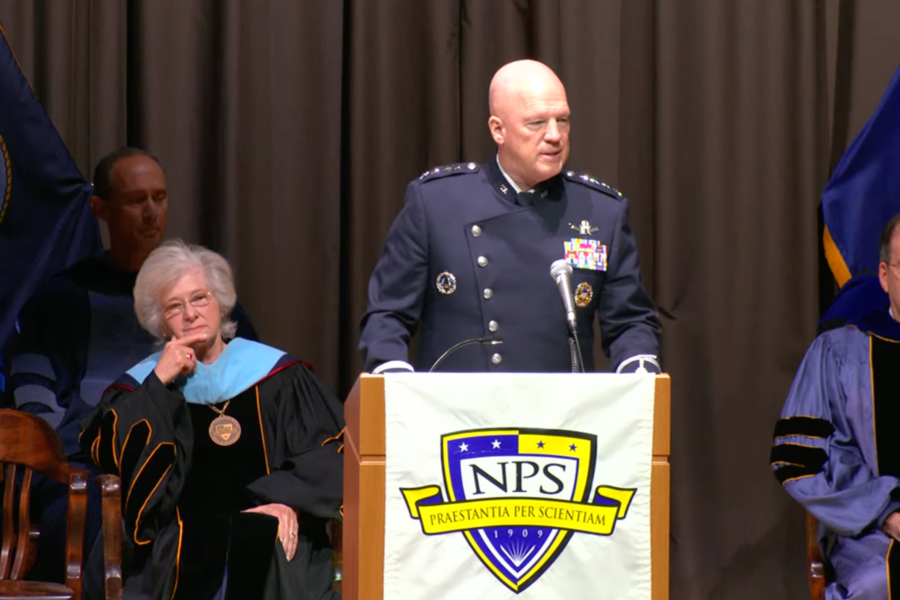Calling space the “critical doorway to war” for all the other armed forces, Chief of Space Operations Gen. John W. “Jay” Raymond addressed 300 Soldiers, Sailors, Airmen, Marines, and Guardians graduating from the Naval Postgraduate School on June 17.
“Whether you’re in the Army, Navy, Air Force, or Marines, all of your force structure assumes that you have access to space,” Raymond said. “And if we don’t have access to space, we don’t have enough ships, airplanes, tanks, Airmen, soldiers, sailors, Marines, to do what our nation is asking you to do.”
Space Force leaders have said they want to build their focus on fighting and operational impact this year, the service was established. One way USSF is doing so is forming new components to embed within geographic combatant commands, like U.S. Central Command, U.S. European Command, and U.S. Indo-Pacific Command.
“Space underpins all instruments of our national power, and space has become vital to our national security—from global missile warning to precision navigation and timing to global communications and, increasingly, global intelligence, surveillance, and reconnaissance,” Raymond said. “Space is a huge force multiplier for all of our services.”
Debate over whether the Space Force should provide support functions to other services or project power in space, as a distinct warfighting domain continues, but Raymond said the new National Defense Strategy clearly recognizes “the character of war has changed,” requiring a multi-faceted approach to Space.
“It’s global, it’s multi-domain, it’s conducted at great speeds and across vast distances—global distances,” Raymond said. “Autonomy, artificial intelligence, machine learning, [and] commercial capabilities will be at the forefront.”
Space shares similarities with the maritime domain, he said, noting that both are “global, … rich in resources, and they’re both critical to our prosperity and to our security.”
While the Space Force was largely formed from the former Air Force Space Command, it has begun to identify Sailors and Marines for transfer into the Space Force. Just recently, the Naval Satellite Operations Center became the 10th Space Operations Squadron. Having a unique space identity, however, does not preclude relying on established educational programs like the Naval Postgraduate School.
“The Naval Postgraduate School educates you on how to think, how to analyze a problem, and this provides profound value to our entire Joint Force and to the Space Force in particular,” Raymond said. “It allows cutting edge advancement in research and development. It creates leaders who can think their way out of problems, like how does one stand up a lean new high-tech service?”
